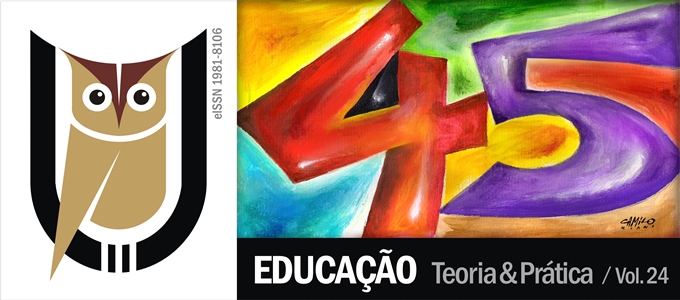Assessing the impact of a sex education program in primary education
DOI:
https://doi.org/10.18675/1981-8106.vol24.n45.p76-95Keywords:
Sex Education. Evaluation. Gender Stereotypes. Gender Inequalities.Abstract
This study intended to evaluate a sex education program (SEC) for the students of third grade, which was prepared according to directions of the law 60/2009 in Portugal. The SEC program consists of five sessions. For the evaluation of the program it had been used a qualitative methodology based on interviews before and after application on a sample of students aged 8 and 9 years old: 16 students from the experimental group (participants of the ESC) and 11 from the control group. The interviews were analyzed by content analysis. Before implementing the program, both groups had some knowledge in the area of sexuality. In the other hand, had misconceptions and numerous gender stereotypes. After the SEC application, it was found an increase in knowledge in the experimental group, compared with the control group, but in both groups, gender stereotypes persist. The results indicate that the sex education Portuguese law is unable to point the specific needs of this age group, by not to stressing the importance of working in the sex education programs for the first cycle the gender stereotypes and therefore, gender inequalities.Downloads
Additional Files
Published
How to Cite
Issue
Section
License
Authors who publish in this journal agree to the following terms:
a) Authors assign copyright to the journal, with the work simultaneously licensed under the Creative Commons Attribution License that allows sharing of the work with acknowledgment of authorship and publication in this journal.
b) The policy adopted by the Editorial Committee is to assign copyright only after a period of 30 months from the date of publication of the article. After this time, authors interested in publishing the same text in another work must send a letter to the Editorial Committee requesting the release of the assignment of copyright and wait for a response.
c) This journal provides public access to all its content, since this allows greater visibility and reach of published articles and reviews. For more information on this approach, visit the Public Knowledge Project, a project that developed this system to improve the academic and public quality of research, by distributing OJS as well as other software to support the public access publication system to academic sources. The names and email addresses on this website will be used exclusively for the purposes of the journal and will not be available for other purposes. This journal provides open any other party  This work is licensed under a Creative Commons License
This work is licensed under a Creative Commons License











